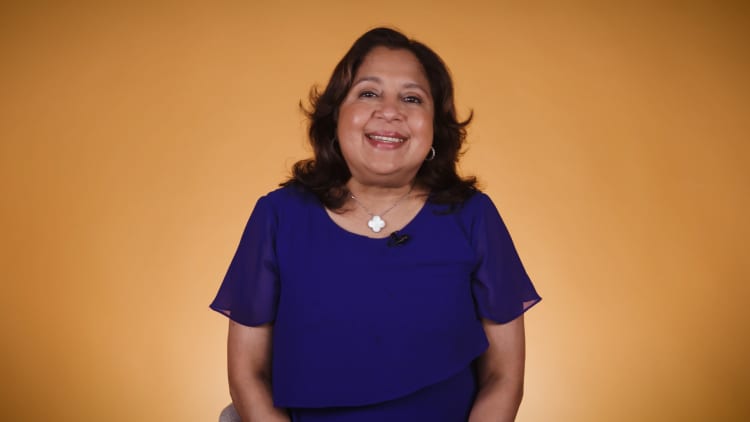
You might think your perfectionist streak is a reflection of your ambition. Mental health author Morra Aarons-Mele disagrees.
“Perfectionism is anxiety,” Aarons-Mele, host of “The Anxious Achiever” podcast and author of “Hiding in the Bathroom: An Introvert’s Roadmap to Getting Out There (When You’d Rather Stay Home),” tells CNBC Make It.
Too many people think that “if we don’t give 100%, if we’re not perfect, it’s a judgment on us,” she adds. “It’s not about our work. It’s about us and our inherent value.”
Perfectionism among young adults has increased significantly since the 1980s, spurred in part by social media and people’s tendencies to measure themselves against their peers’ success at school and work, found a 2018 American Psychological Association study.
And setting unrealistically high standards for yourself carries an intense mental toll.
“As many as two in five kids and adolescents are perfectionists,” psychologist Kate Rasmussen, who researches child development and perfectionism, told the BBC in 2018. “We’re starting to talk about how it’s heading toward an epidemic and public health issue.”
Unlearning the most painful parts of your perfectionist tendencies can start today, Aarons-Mele says. Here’s how.
Learn how to recognize the signs
There’s a reason you’ve been clinging onto perfectionist tendencies this long, Aarons-Mele says: They probably seem to work for you.
Perfectionists have higher levels of motivation than non-perfectionists, research shows — which can make you feel like your relentless pursuit of perfection alone is keeping you on track.
But the benefits stop there. Perfectionism also leads to low self-worth, high stress and depression and anxiety disorders. Your work suffers, too: By completing tasks less efficiently, perfectionists actually produce lower-quality work than they’re capable of as a result, researchers at Canada’s Trinity Western University found in 2009.
Longer term, perfectionism usually leads people down one of two paths, neither of which are good for you, Aarons-Mele says. You’ll either overwork yourself until you’re totally burnt out or endlessly procrastinate because the stakes feel too high.
Her first step to addressing the problem is simple: Start paying attention to when and where it pops up in your life. Are you so worried about an upcoming project that you can’t even open a Google Doc? Do you find yourself glued to your laptop late into the night because you swear another hour of work will finally make your report perfect?
The more you know about your tendencies, the more you can specifically focus on changing them, Aarons-Mele says — and the less energy you’ll waste spinning your wheels elsewhere.
Set ‘ground rules’ for your brain
If your perfectionist tendencies are severely hampering your life or work performance, Aarons-Mele emphasizes that you should seek professional help. Given the link between perfectionist tendencies and anxiety, there’s likely an underlying cause that a professional can help you work through, she says.
Otherwise, Aarons-Mele suggests setting some “ground rules” so your behavior doesn’t match the intensity of your thoughts.
That might mean setting a time limit for a project you’re tempted to overwork on. Be realistic about what’s feasible, and aim to work for a shorter amount of time than you usually would. If a project shouldn’t take eight hours, don’t let it take eight hours.
Instead, plan ahead of time to determine how you’ll pace yourself. Give each task a mini-deadline, so you’ll stay on track and have something presentable — even if it’s not perfect — by the end of your eight hours.
Or, if you’re too nervous to begin a project because you want it to go perfectly, set small, tangible goals to help yourself get going. These benchmarks can be tiny: open a Google Doc, write an email. The idea is to give yourself momentum.
These strategies only work if you treat yourself with compassion, and keep pushing back against the voice telling you everything needs to be perfect, Aarons-Mele says. Remind yourself, she adds: “I am that excellent, amazing person without all of the anxiety and pressure.”
Get CNBC’s free Warren Buffett Guide to Investing, which distills the billionaire’s No. 1 best piece of advice for regular investors, do’s and don’ts, and three key investing principles into a clear and simple guidebook.
Sign up now: Get smarter about your money and career with our weekly newsletter

